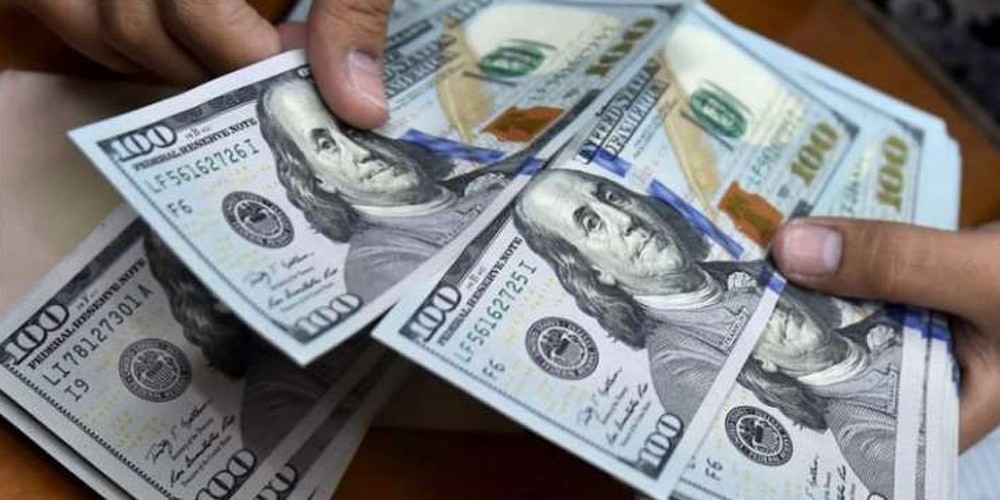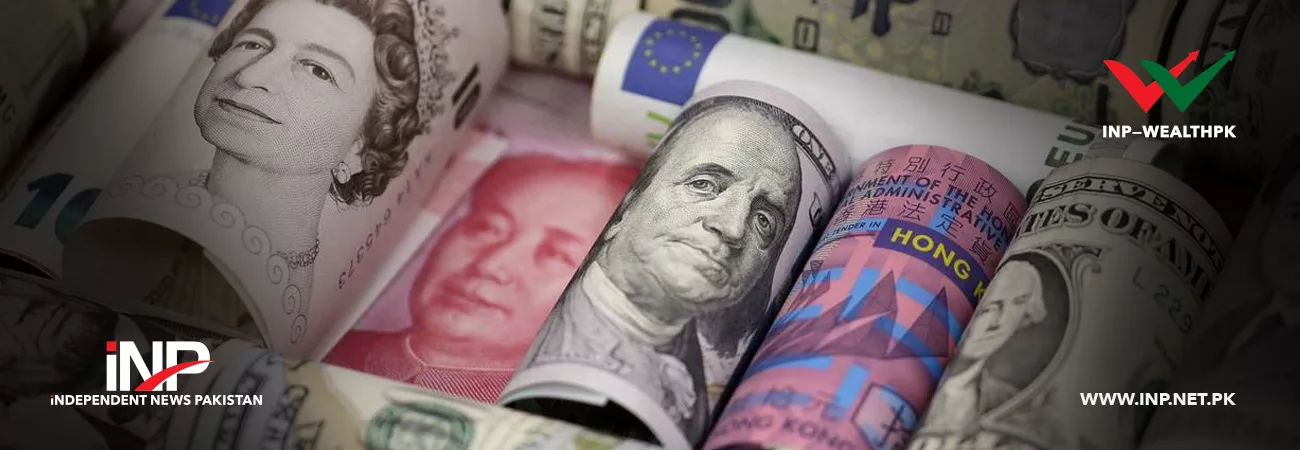INP-WealthPk
Sajid Irfan
Pakistan's foreign exchange reserves are declining by the day, severely eroding the value of the home currency and causing spiralling inflation.
Currently, the State Bank of Pakistan reserves are not enough to cover the imports of just over a month, exposing the country to grave liquidity problems in the wake of a squeeze on sources of dollar inflows into the country.

Dr Amanat Ali, an assistant professor at Quaid-i-Azam University, Islamabad, told WealthPK that fluctuations in exchange rate were largely affected by the precarious foreign exchange position of the country. He said that when demand for a currency increases its value versus the competing currency appreciates, directly affecting the exchange rate.
He said that according to the State Bank of Pakistan, the country’s total foreign exchange reserves stood at $13.6 billion as of the last week of October, of which the commercial banks held $5.756 billion.
Amanat Ali stated that the government of Pakistan’s ban on imports of luxury items is a positive step that is helping stabilise foreign exchange position. “Due to restrictions on imports, there will be fewer import payments and less outflow of dollars.”
The assistant professor said that Pakistan’s economy inherently faces challenges of low levels of foreign exchange reserves as the country’s import value tends to surpass that of exports by a huge margin. “The ongoing political instability is also fuelling economic downturn,” he added.
He said the government should keep the ban on import of unnecessary imports as reverting to the policy of allowing all sorts of imports, including luxury goods, would deplete the foreign exchange reserves, putting further pressure on Pakistan’s external sector. “Decline in reserves will further push the rupee down against the dollar, further fattening the import bill. Unstable foreign exchange reserves have the potential to create challenges for the government.”
Amanat Ali said though the increase in remittances is a key factor providing cushion to the foreign reserves, they are also on the decline due to depressed economic conditions in host countries of expatriate Pakistanis.
He said that the outgoing financial year's ballooning trade deficit was propelled by the highest-ever increase in oil prices and commodities in the international market due to supply chain disruptions caused by Covid-19 and the Russia-Ukraine crisis. “Pakistan is facing growing economic challenges, with high inflation, sliding forex reserves, a widening current account deficit and a depreciating currency.”
Amanat Ali said that optimal use of railways for goods transportation could help bring down the oil demand, which would definitely lead to savings in foreign exchange reserves. In the same way, switching to cheaper modes of electricity production like hydroelectric, wind and solar could also ease the pressure off the foreign reserves
“Rather than repeatedly approaching the International Monetary Fund for seeking bailout packages, there is a need to develop a comprehensive policy to enhance domestic production and thus exports to boost the foreign exchange reserves,” he underscored.
Credit : Independent News Pakistan-WealthPk













